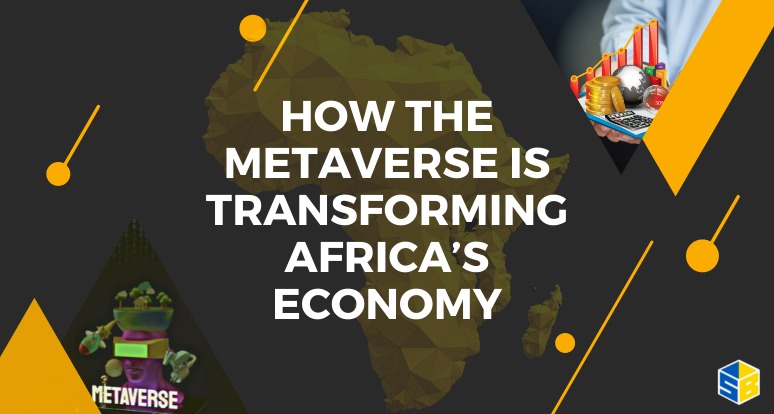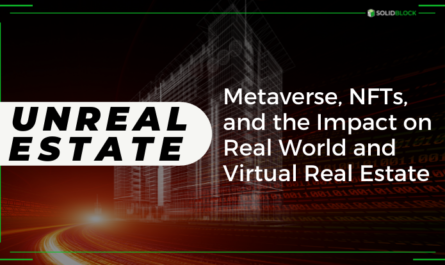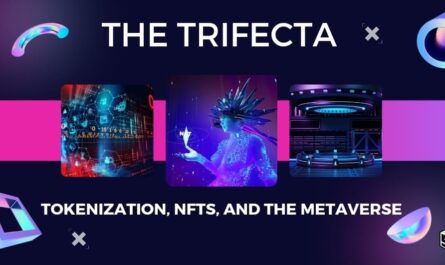
One of the fastest emerging trends in technology is the development of digital worlds and their associated opportunities. Some predict that the value of the metaverse will reach $800 billion as early as 2024, based on a current valuation of $47 billion.
A majority of this focus has been directed toward the American social media giants and western-oriented countries. But how do these metaverse opportunities impact the rest of the world?
With its ability to leapfrog technological advances and with the youngest population worldwide, Africa stands a good chance of benefiting from this emerging trend in the fields of health, education, and investments in startups. As of 2021, around 40% of the population in the African continent was aged 15 years and younger, compared to a global average of 26% of the same-aged population.
As part of MetaWeek 2022 in Dubai, SolidBlock’s Web3 Research Lead, Lydia Scherr, was part of a panel entitled, “Building New Opportunities for Africa & the Middle East with Metaverse & Digital Transformation.”
The panel was moderated by John Kamara, Founder of Adalabsafrica and Chairman of the African Blockchain Center. The other two panelists were Mamadou Toure, Founder and CEO at Ubuntu Group, and Founder of Africa 2.0 Foundation, and Alex Blagirev, Deputy CEO, Sensorium.
With its focus on what the metaverse means for African talent, industry, the transformation of ownership, and possibilities for growth in the fields of health and education, the panelists discussed how the metaverse represents both a leapfrog in technology for African countries and technological challenges.
The metaverse provides a level playing field for anyone who has imagination, suggested Mamadou. “Think about education. If developed properly, and made accessibly, you won’t have to travel far, you won’t have to own that much money, and you’ll be able to get the same level of education as anyone else.
“Health care is also a game-changer,” he continued. “Did you know that 60% of diseases and issues that people encounter do not require you to go to the hospital? If you handle that with telemedicine, you have a huge impact. And that’s the power of blockchain. You can effectively transact from wherever you are.”
Africa is often referred to as a country when in reality it is a massive continent with many countries full of diverse cultures and traditions.
Many of Africa’s young people are becoming skilled in coding. African youth can offer high-quality services at good prices, without having to leave Africa. Virtual work and metaverse integrations to the remote work environment will also benefit African developers. This is essentially an opportunity for showcasing African tech talent and for a “reverse brain drain” throughout African nations.
Africa has jumped ahead in terms of digital currency adoption, and can also stand to benefit from merging metaverse solutions to real-world problems. There are unique challenges in African nations that can be addressed by NFTs and blockchain to enhance social security.
“NFTs could be impactful in countries where actual real estate titles are unclear and many places are grappling with the fact there is no clear reporting of titles,” stated Lydia. “Blockchain allows you to leapfrog through the title registry and go straight to the metaverse or NFT to record the ownership of people’s lands.”
The NFT market grew a whopping 2100% from 2020 to 2021, and JP Morgan analysts project that the NFT market will be worth $1 trillion by 2024. Major developments are taking place in the world of NFTs and the building of “meta” worlds for virtual reality and augmented reality experiences.
As a moderator, John pointed out that investments in African startups are growing, and today, in 2022, there are expectations that $12 billion will be invested. As a use case, John suggested that the metaverse could be amazing for tourism where visitors could enter an African safari metaverse where artists’ renditions of their environments would be bought and traded.
“In addition to NFTs, the next biggest thing will be tokenization and the idea of fractionalized ownership of assets,” Lydia chimed in.
Lydia recalled a funny dream she’d had about selling a patent to Elon Musk. While it might not happen in reality, it could happen in the metaverse. “The metaverse can make more dreams come true. People can dream bigger and do things they otherwise wouldn’t be able to do in real life.”
In conclusion, Lydia suggested that beyond profits, there is an impetus for people to work in tandem to democratize access to education and health care that help humanity move forward. Africa is an emerging continent with an enormous mix of countries and people who can grow their businesses with investments and impact the world.
About SolidBlock
Blockchain is fueling changes not only in the metaverse but also in the way real estate is transacted. Blockchain’s primary value lies in its ability to improve old systems. Transparency and immutability of data, and global access and tradability are just part of the equation.
SolidBlock’s real estate tokenization platform is a bridge to a decentralized financial system that will ultimately democratize the way individuals invest in property. SolidBlock integrates transactional and market data to provide investors tools to invest according to their risk preference at any stage of the project development.
We are unique in that we provide the tools to help real estate owners access global capital by creating compliant, secure digital securities using blockchain aka tokenized real estate. These securities give investors access to global real estate, which can be traded like stocks and keeps their capital liquid.
Sign up for our wait list to receive news of SolidBlock’s upcoming projects. And watch our 15-minute training video to learn more about why you should tokenize real estate.

 by
by 

